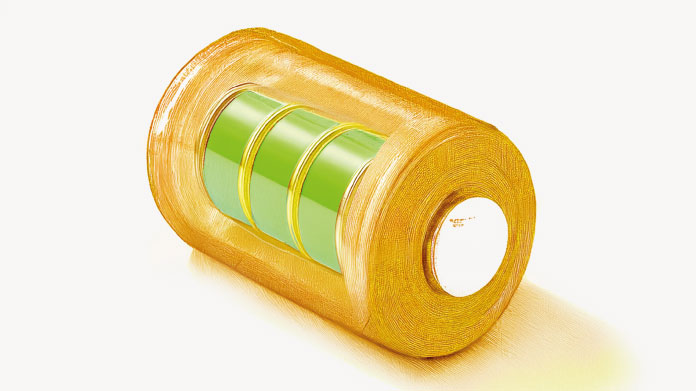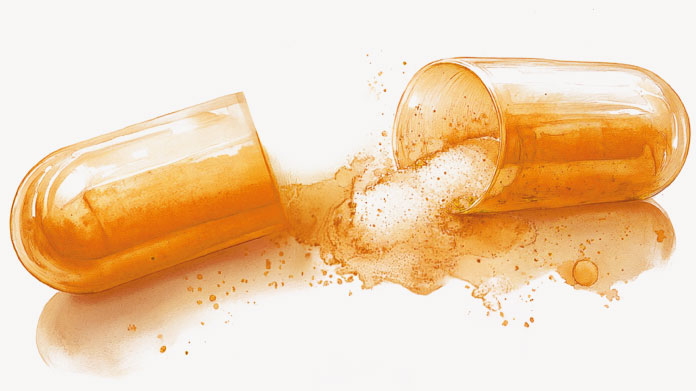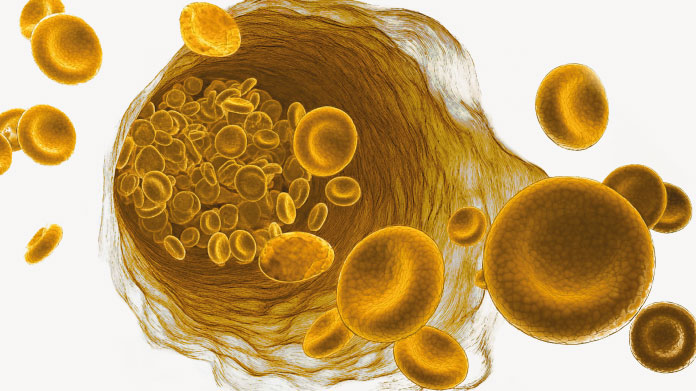4 dietary supplements to take when breastfeeding
Breastfeeding can be a magical experience for many young mums. Appropriate supplementation can provide valuable support.

The benefits of supplementation for breastfeeding
In order for breastfeeding to be a stress-free experience, a new mother needs to have a plentiful supply of milk. What’s more, this milk needs to be rich enough to ensure her baby is getting the best possible nourishment.
Tiredness, combined with an insufficiently balanced diet, may deplete a mother’s milk and make feeding problematic. In such cases, natural supplements can be invaluable in helping a new mum provide the maximum nutritional benefit to her baby.
DHA (omega-3) improves the baby’s cognitive function
Omega-3 are essential fatty acids known for their ability to regulate the body’s fat levels. One such omega-3 is DHA, recognised for improving cognitive function and visual acuity in breastfed babies (1).
Omega-3 are naturally present in oily fish, but new mothers can also obtain them direct from fish oil supplements (such as Super Omega 3 which has particularly good bioavailability). For optimal digestibility, they are best taken with food.
Iodine, to prevent deficiency in both mother and baby
Iodine supplements can be recommended in cases of iodine deficiency. A lack of iodine poses a risk of hypothyroidism – insufficient production of hormones by the thyroid gland – which can potentially retard the baby’s growth and impair its nervous and mental function. It may even result in the baby having a lower than average IQ (2).
This hypothyroidism risk is easily addressed by taking an iodine supplement. Ideally, opt for a pure, natural product such as Natural Iodine.
According to tradition, milk thistle stimulates lactation
Milk thistle is a wild plant rich in silymarin, a powerful flavonoid with multiple benefits for health. In particular, it plays a significant role in the liver and digestive system.
Traditionally, silymarin is also considered a ‘galactogen’. Herbalists believe it can stimulate lactation, boosting a mother’s milk supply. Note, however, that while studies have pointed to silymarin having such as a property (3), this has yet to be scientifically proven
.Silymarin is readily available as a nutritional supplement (for example Silyplus).
Calcium and vitamin D to restore bone mass in new mothers
During pregnancy, women suffer a loss of bone density: they need more calcium once the baby is born. In addition, a young mother’s calcium levels may decrease during breastfeeding because significant amounts are passed to the baby via her breastmilk. Supplementing with calcium is therefore a sensible precaution (Calcium Orotate).
It’s also wise to take a vitamin D supplement (4) at the same time, such as Vitamin D3 5000 IU. Women who have just given birth are actually often deficient in vitamin D yet it’s important for ensuring effective absorption of calcium by bones.
Breastfeeding is a special time for a mother and her baby. A balanced diet, with a wide variety of healthy foods, will help optimise the experience. Carefully-chosen, natural supplements can also offer significant support to young mums in giving their babies the best possible start. Be sure, however, to check with your doctor before taking any medicine or supplement during pregnancy and breastfeeding.
References
- Actualisation des apports nutritionnels conseillés pour les acides gras. ANSES, 2011. Consulté en mars 2020.
- La supplémentation en iode pour les femmes avant, pendant ou après la grossesse, Cochrane. Mis à jour en mars 2017. Consulté en mars 2020.
- Pierro, Francesco Di, Alberto Callegari, Domenico Carotenuto and Marco Mollo Tapia. “Clinical efficacy, safety and tolerability of BIO-C (micronized Silymarin) as a galactagogue.” Acta bio-medica : Atenei Parmensis 79 3 (2008): 205-10.
- Laura A. Basile, Sarah N. Taylor, Carol L. Wagner, Ron L. Horst, and Bruce W. Hollis.The Effect of High-Dose Vitamin D Supplementation on Serum Vitamin D Levels and Milk Calcium Concentration in Lactating Women and Their Infants. Breastfeeding Medicine.Mar 2006.27-35.
Keywords
66 Days
Fiables y Recomendables
Como siempre estáis siempre ofreciendo alternativas naturales a los diversos problemas de Salud con un buen despliegue de información y una variada gama de productos. Y os felicito por el servicio de entrega que hacéis ahora que supera con creces el de antes.
Mariano Navarro Sanchez
66 Days
produits innovants
produits innovants, avec une composition claire
véronique de sainte marie
66 Days
Ravie et Très Satisfaite de Ma Commande…
Ravie et Très Satisfaite de Ma Commande et de Mes Commandes Très Bons Produits
Brigitte D.
66 Days
Produits fiables
Produits fiables
jacqueline
66 Days
Tout est OK 👌
Tout est OK 👌
RICHARD Bertrand
66 Days
Bestelle das Produkt seit Jahren immer…
Bestelle das Produkt seit Jahren immer wieder ist echt super, Preis Leistung ist ok könnte noch ein bisschen billiger sein aber sonst ok
SONJA Hofbauer
66 Days
Commentaire
Excellent services
DIDDY Mohamed
66 Days
Livraison rapide
Livraison rapide
devouass
67 Days
Schnelle Lieferung
Schnelle Lieferung. Gute Begleitung der Lieferung
SCHARWAECHTER Hans Juergen
67 Days
Efficace rapidement
J’ai commencé à prendre les facteurs de croissance osseuse alors que j’étais en plein accès douloureux d’ostéoporose. Mon état s’est stabilisé en quelques jours puis les douleurs ont diminué régulièrement. Je pense continuer ce remède pendant quelques mois puis 1 gélule par jour et une pause etc..
Françoise Delfour
67 Days
Rapidité de livraison avec prestataire…
Rapidité de livraison avec prestataire fiable ! Toujours impeccable.
Virginie
67 Days
Siempre buenas experiencias y cada vez…
Siempre buenas experiencias y cada vez más rápidos los envíos
Elsje Fokkelman
67 Days
Livraison rapide et en parfait état
Livraison rapide et en parfait état. Jamais d'erreur.
WUILLEMIN Sylvie
67 Days
J'ai trouvé rapidement sur le site le…
J'ai trouvé rapidement sur le site le complément qui m'était nécessaire et la livraison a été très rapide. Merci.
Client
67 Days
Je recommande ces produits
Facilité pour passer les commandes. Délais de livraison tenus. Produits de qualité. Je suis cliente depuis longtemps et très satisfaite.
Alexandre PUBERT



